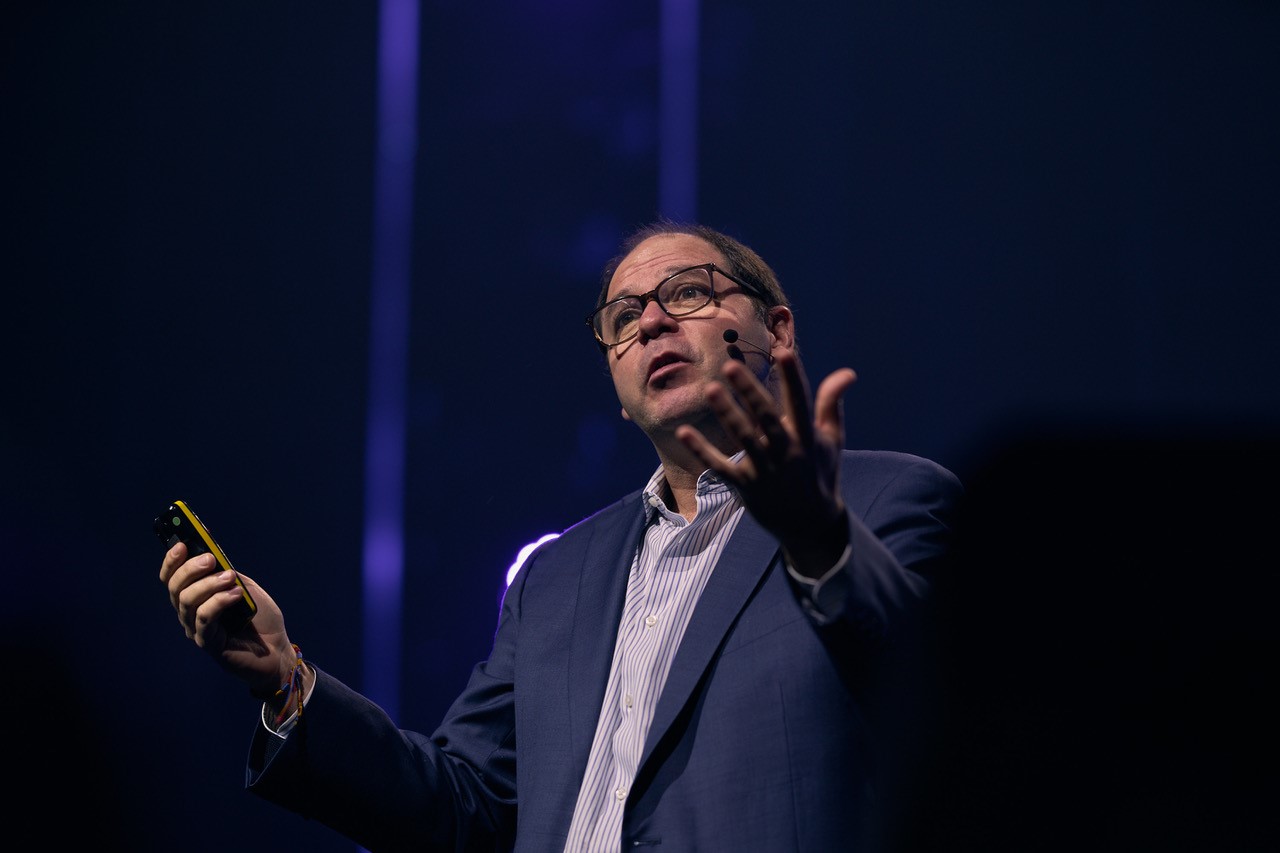
Felipe Gomez could easily be mistaken for a rock star when he’s deep in action on stage. His piano performances and keynote presentations invariably elicit thunderous applause and standing ovations from audiences.
Success, however, didn’t come easy. Few know that Gomez’s musical keynote speeches are a distillation of his rocky entrepreneurial journey spanning more than three decades.
“My career path has been full of exciting and triumphant moments, but there has also been a lot of despair and pain, and some of the startups and companies that I’ve built didn’t quite work out,” he said. “I feel like I have to share my story to help other people overcome some of the more difficult moments in their lives.”
Transforming setback to opportunity
From a young age, Gomez dreamed of pursuing music as a career. But well aware of the harsh reality of the industry, he decided to follow in his father’s footsteps to carve out a career in the business world. “Music is not an easy profession and very few musicians make it to the top,” he admitted.
After graduating with a business degree at Universidad de los Andes, Colombia, he started a web design firm, Ink, which initially thrived. But during the economic crisis in 1999, the business was hard-hit, and Gomez pivoted it to an e-business consultancy in the hope of riding the dot-com wave. But worse was to come.
“When the dot-com boom suddenly collapsed in 2001, we had to fire people and close offices,” he recalled. “But it also taught me a lot. I got to travel, explore, and relearn how to grow a company. It was an exciting entrepreneurial experience. But at the same time, it was very painful.”
The setback made him take stock and he considered pursuing an MBA to carve out a new career path. Gomez had earlier considered taking up an MBA at Columbia Business School in New York but changed his mind following the September 11 terrorist attacks.
“At that time, I had just become a father, and I kind of got scared of moving to New York,” he said. “In the end, I decided to apply to IMD and fortunately, I was successful. As it turned out, I met an incredible bunch of people, and the experience really opened my mind.”
Gomez recalled a significant moment during the MBA program that gave him a glimpse of his future work. “One day, the program director brought in a guy to have a session with us on leadership and each one of us was given a drum,” he said. “Using percussion techniques, he taught us the basics of coordination, finding the rhythm, as well as teamwork and respect. That session really showed me the wonderful symbiosis of music and how it can be used as a language to train, inspire, and upskill business executives. It was instrumental in showing me that I could do something like that.”
After completing his MBA, Gomez poured his efforts into setting up Pharmacity, one of the largest pharmacy chains in Colombia. This was followed by SCALA, a purchasing and procurement company for the hospitality industry.
In 2007, the subprime mortgage crisis hit, and the funding markets dried up. “Four years after we set up SCALA, we were in the midst of raising a round of capital. Just as we were going to ink the deal, it collapsed,” he said. “Because of the mortgage crisis, the whole venture capital community started panicking. In the end, we had to pull the plug on our business.”
It was then that he received a call from a professor at a Colombian business school who invited him to deliver a semester-ending lecture for a class. “I went there and told them my story using a metaphor about life’s moments of joy, abundance, despair, and sadness,” he said. “While I was delivering that speech, I really felt something special. It felt like a calling.”
The ‘secret sauce’ for life and leadership development
That classroom presentation, the drum session at IMD, and other points he connected, marked an inflection point in his career journey as he embarked on a new chapter in public speaking. Over the next decade, Gomez chalked up over 1,000 performances across 27 countries and he participated in global leadership conferences, including the World Business Forum, the Global Peter Drucker Forum, and the Oslo Business Forum.
Over the years, he adapted his keynote presentations to include live musical performances. “Ideas may be important from a leadership and business perspective, but having music as a metaphor and playing the piano as part of the performance creates a session that is not just intellectually stimulating but delivers an emotional experience,” he said.
Gomez affirms that the musical elements incorporated in his keynote presentations serve more than a performative role. He argues that the principles of virtuosity, by extension, can be leveraged as a tool by executives and managers to catalyze their leadership development.
“Virtuoso musicians from the classical era such as Mozart, Beethoven, and Bach are perfect embodiments of method, attitude, and passion. Just as how musicians can achieve virtuosity by developing these three attributes, leaders can also adopt these key drivers of virtuosity to attain leadership success,” he explained.
He cited the example of passion. “A musician may be very skillful, but without passion for music he or she will not be able to generate a standing ovation from audiences. Similarly, leaders may possess expert market knowledge and technical expertise. But if they do not love what they are doing, they will not be able to inspire their teams, which is crucial to organizational success,” he said.
In closing, Gomez shared: “Etymologically, the word ‘virtuoso’ shares the same root as ‘virtue’. For 2,000 years, great thinkers like Aristotle have been teaching us that when we cultivate virtue, we become virtuosos. And when that happens, you not only excel but find true happiness. And this is the secret sauce.”


